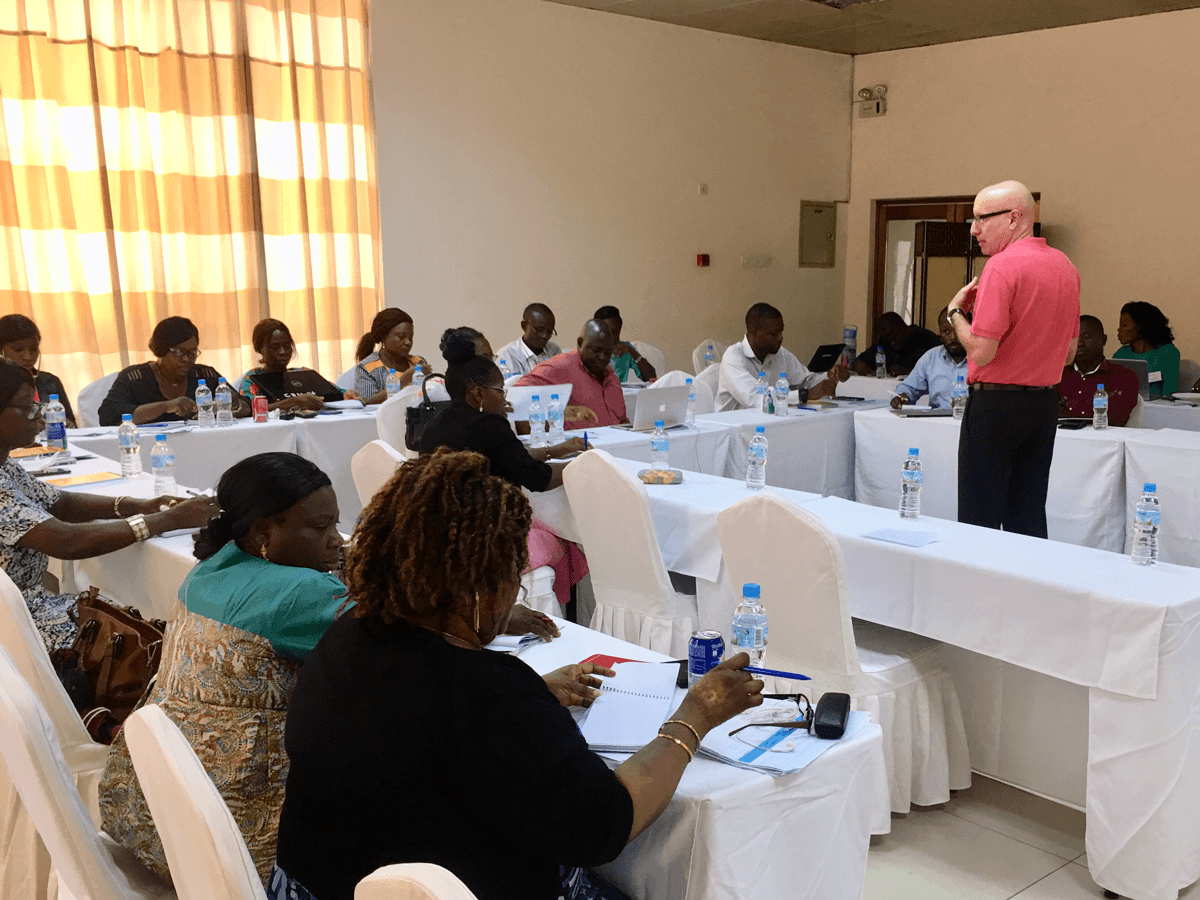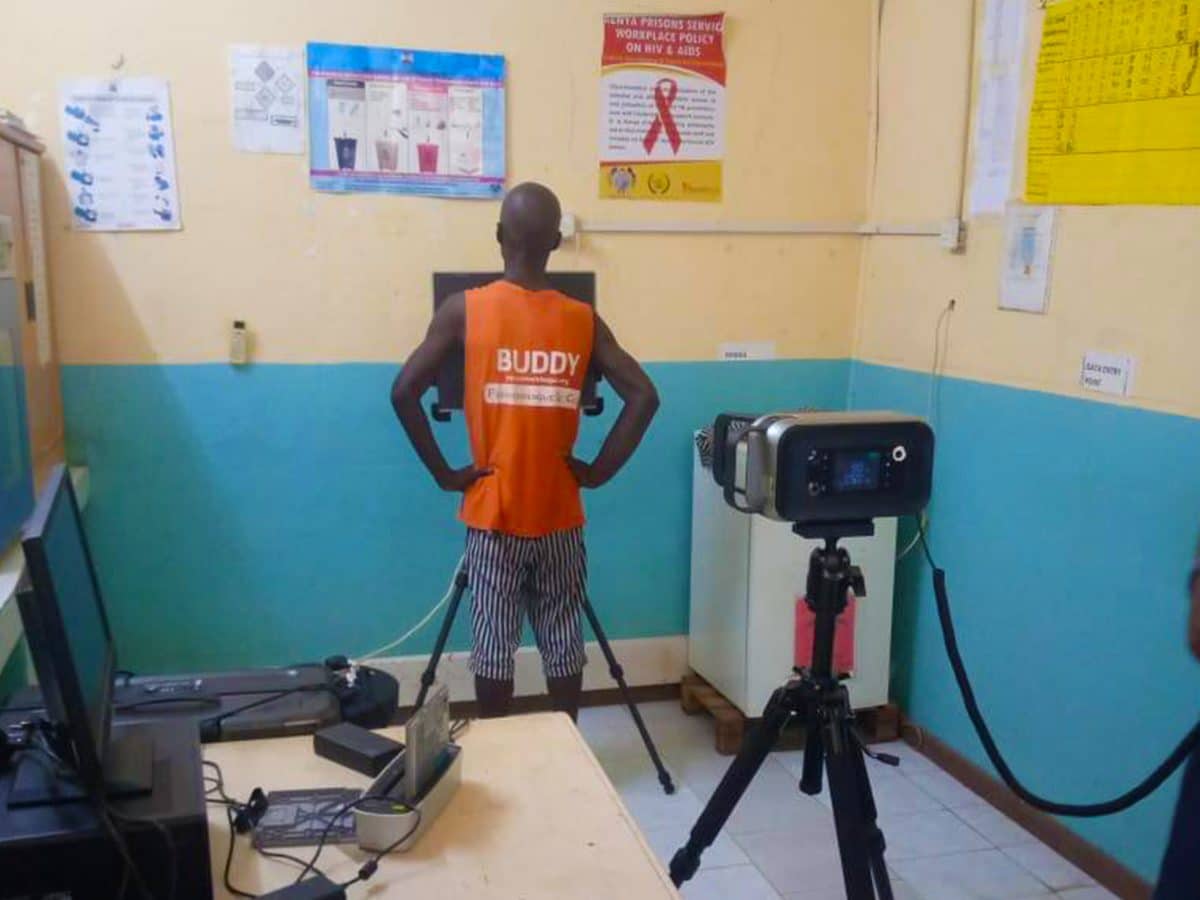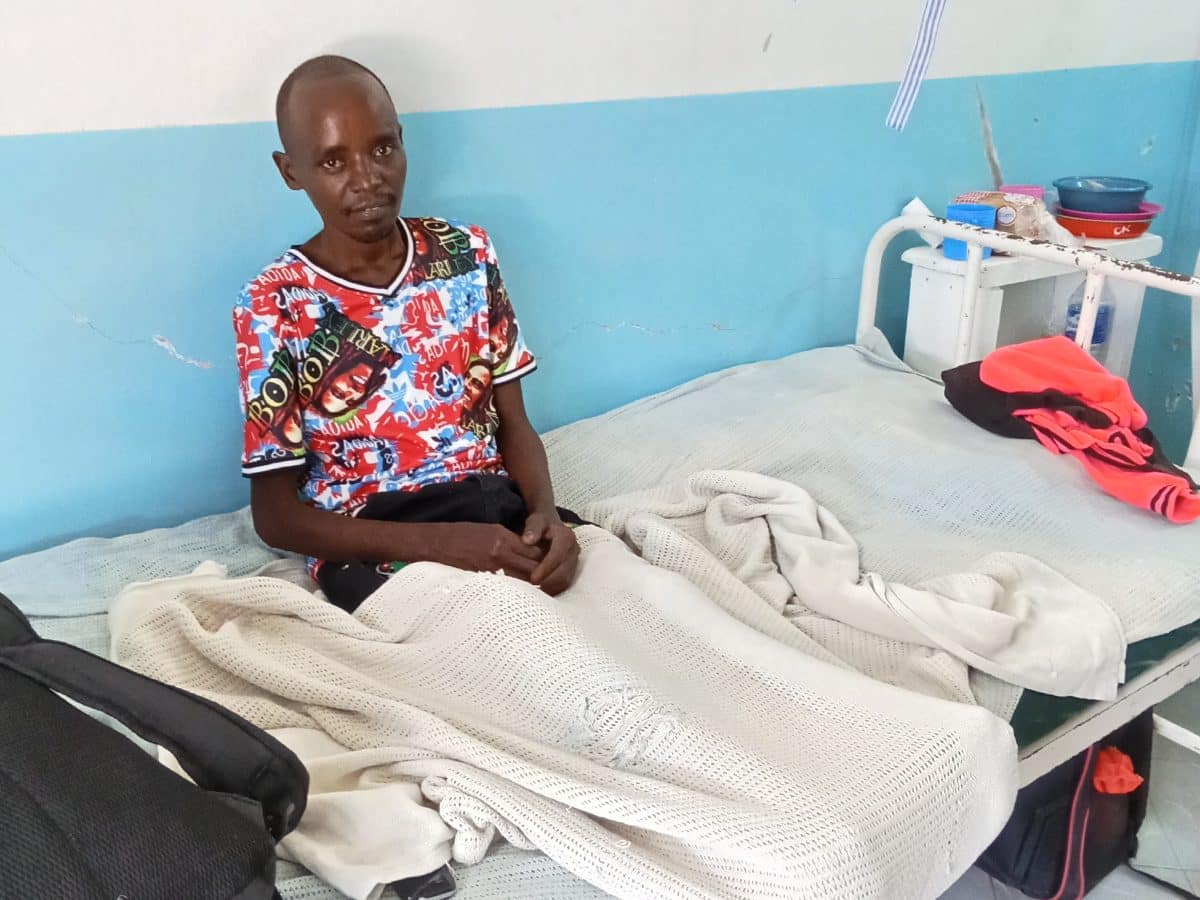As a leader in Sierra Leone’s Ministry of Health and Sanitation, Mary Fullah, RN, MPH, deputy chief nursing and midwifery officer, has difficult challenges to contend with: a severe shortage of health workers, including nurses, and a health system still recovering from the Ebola outbreak. For Mary and many in positions like hers, the demands of day-to-day management often leave little room for big-picture thinking and planning.
“Senior health care officials are often very competent managers but struggle with how to move their organizations forward,” explained Susan Michaels-Strasser, PhD, MPH, RN, FAAN, ICAP’s senior implementation director.
Focusing on strategic thinking and data-driven decision-making as key aspects of effective leadership, ICAP invited Ms. Fullah and 24 other health officials from across Sierra Leone to participate in two training courses developed by Professor Paul Thurman of the Department of Health Policy and Management at the Mailman School of Public Health.
Transitioning from Management to Leadership and Strategic Thinking: Tools for Conceptual, Analytical, and Operational Success, each held over two days, guided participants through strategies and tools they could use to ensure that their offices’ day-to-day activities actually drive overall policy and programmatic advancement.
“This type of training is just what we need to take our country’s public health services—clinical and public health—to the next level. Some of the tools we learned in these courses can be immediately applied back with our staff and teams,” Ms. Fullah reported.
The two courses were offered as part of ICAP’s multi-year grant from the U.S. Department of Health and Human Services Resilient and Responsive Health Systems Initiative. Through this initiative, ICAP is implementing a multi-pronged strategy to strengthen human resources for health in Sierra Leone, including strengthening health education infrastructure, improving coordination and monitoring of human resources, and improving workforce performance and management.
“By providing leadership and strategic thinking skills to Sierra Leone’s health care and health ministry senior staff, we can not only make a difference in clinical outcomes but also in public health policy and management effectiveness,” said Prof. Thurman, a veteran of several ICAP initiatives across Africa.
Going forward, select course participants will become trainers themselves, teaching the courses to fellow health leaders and senior managers in and around Freetown.
Dr. Strasser, principal investigator of the RRHS initiative, is confident of the program’s promise: “We are now in a position, with help from the Department of Health Policy and Management, to assist these leaders to better chart the vision for the future of health care in Sierra Leone.”







